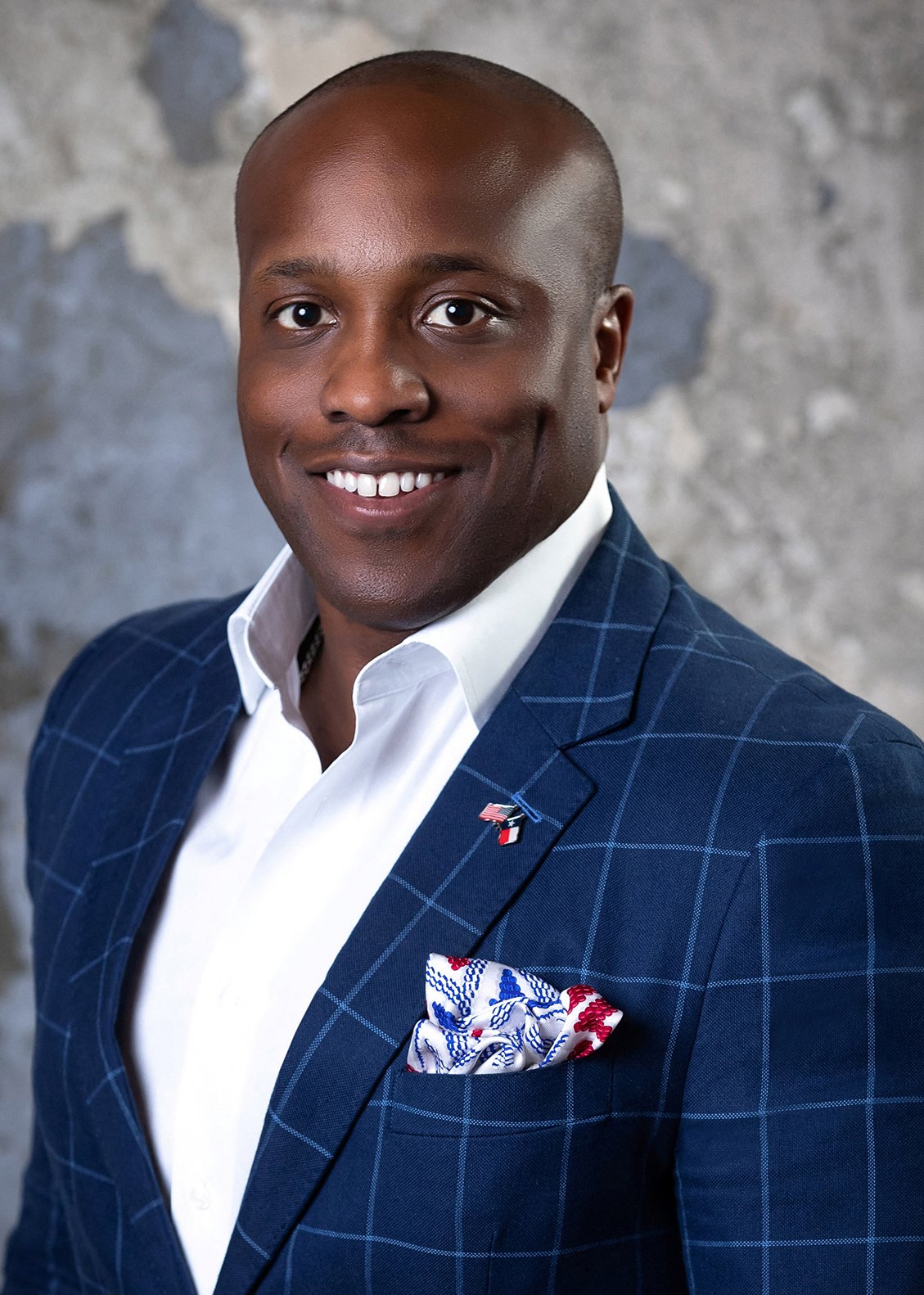Let’s at least put it on the record.

What was promised…
Concerned the University Corridor rapid transit line project could be delayed for years, Harris County Commissioner Rodney Ellis on Friday called on Metro to move forward with the voter-approved project and hold a formal vote to make clear which board members support shelving it.
The request comes a few days after Metropolitan Transit Authority announced it planned to not seek a federal grant this year for the 25-mile bus rapid transit project, designed to be the east-west backbone of Metro’s long-term plans.
“Voters overwhelmingly approved this project and the board itself endorsed the concept last November,” Ellis said in a statement. “Countless working families would benefit from the BRT project, yet the board is poised to try to kill the initiative in the dark of night.”
In a statement, Metro chairwoman Elizabeth Brock said a vote or further discussion amongst officials is unlikely.
“The University Corridor Project will not be placed on the agenda at this time based on staff’s financial review,” she said.
The topic, however, is likely to come up during public comment, as supporters and critics of Metro often use the forum to provide thoughts to board members.
Ellis, in letters to the Metro board, urged officials to proceed with the $2.2 billion project, and have a roll call vote at Thursday’s scheduled board meeting so there is an official record of the support and opposition to moving ahead.
“Turning down nearly a billion dollars of federal money for a much-needed and voter-approved project would be shortsighted and irresponsible,” Ellis said. “Even at the 11th hour, the board still has the chance to invest in our communities’ economic development and vote to seek federal funding.”
Proceeding with the project faces a June 27 deadline for Metro to notify the Federal Transit Administration it is moving ahead and entering a refined design and engineering stage for the project. That notification allows Metro to seek federal money for further planning and ultimately construction of the line.
See here for the previous update. I agree with Commissioner Ellis that if the Metro Board is going to take this craven action, the least they can do is to do it affirmatively, with everyone on the Board giving their approval (or not) and saying why they chose to take this path in defiance of the will of the voters. They can also explain why they didn’t even make a token effort to see if perhaps breaking the project into smaller pieces or seeking assistance from the state (as we are apparently going to do with the firefighter settlement) or the county or hell, “philanthropic donations and grants” a la Mike Miles, could help bridge the gap. The sheer lack of vision here appalls me almost as much as the gaslighting, which I’ll get to in a minute.
One point I want to make before I get to the gaslighting is that while this current action is being driven by the Mayor’s appointees on Metro, Metro is more than just the city of Houston and that 2019 vote included the non-Houston parts of Metro. And when I did my usual precinct analysis of the 2019 election, I found that the 2019 Metro referendum passed with 64% of the vote in non-Houston Harris County. I just wanted to put that out there.
Now let’s talk about what Metro, through Chair Elizabeth Brock, is saying now versus what it said when that referendum was presented to the public for its approval. As a reminder, here’s what Brock has been saying:
When it comes to expansion of public transit, Whitmire and new Metro Board Chair Elizabeth Gonzalez Brock are placing their hopes in microtransit, such as expanded shuttle service and rideshare.
“Uber has set the standard for what transportation should look like in the future,” Brock said recently.
[…]
Brock points to Whitmire’s election last November, where he took just under 65 percent of the vote, as an endorsement of the mayor’s transportation plans. The mayor nominates – and City Council approves – five members of Metro’s nine-member board.
“The public authorized (the bond), they didn’t mandate it,” Brock said. “The public expects us to be very nimble and expects us to be responsible with taxpayer dollars.”
Brock is reluctant to issue the voter-approved bonds for projects that Metro leaders see as questionable investments. If the agency does issue the bonds, she said the money would be used for public safety, infrastructure, and microtransit.
Both Whitmire and Brock said the bond election occurred before changes in technology and work habits changed Houston’s public transit needs, but microtransit programs and technology are not a new development in transit technology.
“Microtransit-type operations have been around for 10, 15 years,” Eccles said. The option was considered during planning for METRONext, he said, resulting in the agency’s current curb-to-curb shuttle service.
Emphasis mine. All that was quoted from this Houston Landing story; “Eccles” is Peter Eccles, director of policy and planning for the transit advocacy nonprofit LINK Houston. Brock is saying that the public authorized Metro to borrow money for some various projects but didn’t specify anything in particular, basically leaving it up to the Board’s discretion and judgment as to what would be best. And those things include microtransit, public safety, and “infrastructure”, whatever that means in this context.
Now let’s turn to what the Board actually said that bond referendum was about back in 2019, when they put it on the ballot and asked us to vote for it. All this will come from this Chron article, dated August 13, 2019, written after the Metro Board voted to put the referendum on the ballot. Yes, they voted on that, they didn’t just shrug their shoulders and decide that it was good enough without a vote. What were they asking the public to authorize them to do?
Metropolitan Transit Authority board members voted Tuesday to ask voters in November for permission to borrow up to $3.5 billion, without raising taxes. The money would cover the first phase of what local leaders expect to be the start of shifting Houston from a car-focused city to a multimodal metro region — even if it does not put everyone on a bus or train.
“Even if you ride in your car, it is more convenient if there are less cars on the road,” Metro chairwoman Carrin Patman said.
The item will be on the Nov. 5 ballot, the first vote for new transit projects in 16 years for the Houston region.
The bond proposition would authorize Metro to move forward on a $7.5 billion suite of projects including extending the region’s three light rail lines, expanding the use of bus rapid transit — large buses operating mostly in dedicated lanes — along key corridors such as Interstate 10 and to Bush Intercontinental Airport, and creating two-way high-occupancy vehicle or high-occupancy toll lanes along most Houston’s freeways.
“It doesn’t do everything we would like to do, but it does everything we can afford to do,” Metro board member Jim Robinson said.
In addition, the ballot item calls for extending the general mobility program, which hands over one-quarter of the money Metro collects from its 1 percent sales tax to local governments that participate in the transit agency. The 15 cities and Harris County use the money mostly for street improvements, but they can use it for other projects such as sidewalks, bike lanes and, in limited cases, landscaping and traffic safety and enforcement.
I’ll interrupt here for a minute to say that if the construction projects can be cancelled willy-nilly, then surely it’s in the Board’s discretion to alter or terminate the general mobility program. I’ll bet getting that piece of the sales tax revenue back would improve the financial picture for those transit expansion projects.
Local elected officials and business leaders will soon stump for the plan, which has not drawn sizable or organized opposition but is likely to require some persuasion.
“There will be plenty for people to scrutinize and criticize with this plan or any infrastructure plan for that matter — everyone wants to know what’s in it for them,” said Andrea French, executive director of Transportation Advocacy Group – Houston chapter, made up largely of engineering and construction companies and transportation planners. “The reality is that we in the industry need to better illustrate that a region that invests in public transportation is a region that thrives and therefore lifts us all up for a better quality of life and more competitive economy.”
[…]
Transit officials would also need to secure an estimated $3.5 billion in federal money, most likely via the Federal Transit Administration, which doles out money for major transit projects. Federal officials contributed $900 million of the $2.2 billion cost of the 2011-2017 expansion of light rail service.
The federal approval will largely dictate when many of the rail and bus rapid transit lines are built as well as where the projects run, Patman said. Though officials have preferred routes for certain projects — such as light rail to Hobby Airport or bus rapid transit along Gessner — those projects and others could change as the plans are studied further.
“Routes will only be determined after discussions with the community,” Patman said. “I don’t think anyone needs to worry about a route being forced upon them.”
Metro would have some latitude to prod some projects along faster than others, based on other regional road and highway projects. Speedier bus service between the Northwest Transit Center at I-10 and Loop 610, for example, could happen sooner if a planned widening of Interstate 10 within Loop 610 remains a priority for the Houston-Galveston Area Council, which has added the project to its five-year plan. Work on widening the freeway is scheduled for 2021, giving Metro officials a chance to make it one of the first major projects.
Many other projects employing various transit modes would follow across the Houston area:
Extending the Red Line light rail nearly six miles north to the North Shepherd Park and Ride, at an estimated cost of $634 million.
Extending the Green and Purple Lines to a common point and continuing both light rail lines along shared tracks to Hobby Airport, at an estimated cost of $1 billion.
BRT service from downtown to Bush Airport, partly relying on a controversial widening of Interstate 45, estimated to cost $242 million.
BRT service along a 25-mile route from Tidwell and Interstate 69 to the University of Houston area, through Midtown and with service to Greenway Plaza and westward to Westchase near the Sam Houston Tollway, at an estimated cost of $1.56 billion
Two-way HOV or HOT lanes along most major freeways so buses can move in limited traffic between suburban areas and downtown and other major job centers, at an estimated cost of $1.37 billion.
Various improvements along more than 260 miles of streets and 16 new or upgraded park and ride lots or transit centers, aimed at improving the speed of service or reliability of routes, at an estimated cost of $513 million.
Metro board members noted the planned project represents the various needs across the 1,285-square-mile service area —a terrain that includes dense urban areas such as the central business district, enclaves within Loop 610 such as Bellaire, suburban office campuses and neighborhoods as far away as Katy and Cypress.
“It meets the needs of what I think people in various areas want,” Robinson said. “In particular it meets the needs of people in northwest and west Harris County.”
There’s more, but you get the idea. Note that the article uses affirmative phrasing such as “when many of the rail and bus rapid transit lines are built” (not “if”), and “Many other projects employing various transit modes would follow” (not “could” follow). No mention of “microtransit” or “public safety”, which we all know means “hiring more cops”, which last I checked was thought to be a bad thing to do with one-time sources of revenue. The last item, about “various improvements along more than 260 miles of streets” could be considered “infrastructure”, though as I recall (I’ll have to do more digging) those “street improvements” very much included things like curbs and sidewalks, all for the purpose of making it easier for people to get to and from bus stops.
I do not see how anyone could read this article in good faith and conclude that the 2019 Metro referendum was about anything other than this massive investment in transit, with the expressly-stated intent to change for the better how people get around the Metro service area. This is why I am so offended by what Chair Brock is saying now. She’s just flat out lying about the referendum, in the service of not doing something she and the Mayor don’t want to do. It’s infuriating and insulting.
“But the financial picture has changed since 2019”, I hear you cry. I agree, that much is true. Construction costs are higher (not that such trivial matters ever affects highway construction). Interest rates are no longer zero. The pandemic was extremely disruptive to Metro’s cash flow and ridership, and no one really knows what the long-term future for some of these things are now. If this were presented as “we need to reprioritize the project list in light of the changes since 2019”, with perhaps the Inner Katy line getting moved in front of the Universities line, or as noted the Universities project being broken into pieces, like maybe do the UH/TSU to Wheeler part first and then go from there, this would hit very differently. It would at least recognize what the public voted for. I wouldn’t like that but I could accept it. I wouldn’t feel like I was being treated like an idiot. Metro would still apply for the grant money, which perhaps they’d be less likely to get now, but wouldn’t just be throwing away all the work that has already been done for some unspecified amount of time.
But that’s not what is happening here. This Board, under this Mayor, is saying they’re not bound by what the public voted for in 2019. They’re saying they can just come in and change the project list to suit their preferences, all the while telling us it’s what we really voted for, we’re just too dim to remember it. They can try to hide behind “fiscal responsibility” fig leaves, but that’s just rubbish. If you can’t or won’t try to deliver on the promises made to voters by a previous administration, then maybe don’t accept a position on the Board. And if you do try, really try, to fulfill those promises but just can’t make it work, then try to fulfill what you can, and be honest about what you can’t do. Don’t lie to us. We deserve better.




















